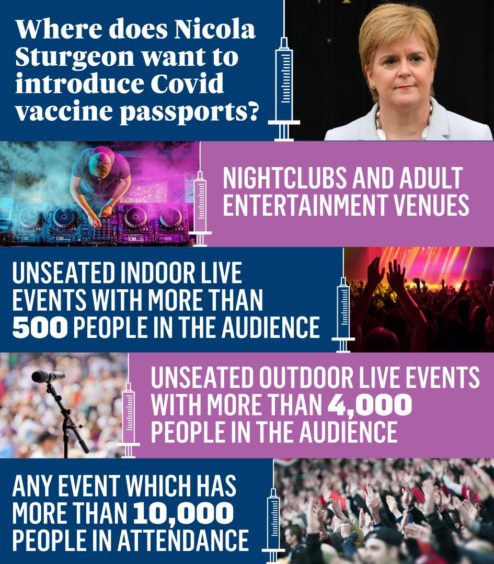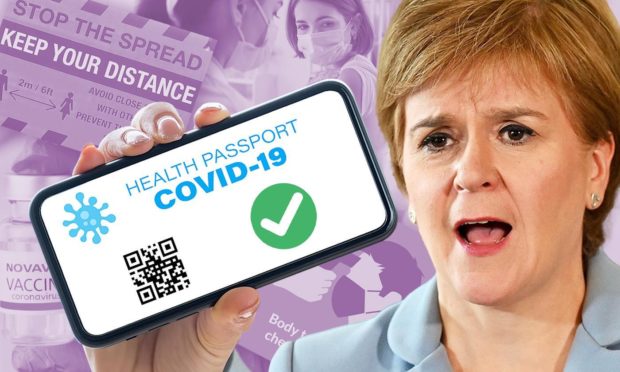Plans by Nicola Sturgeon to introduce Covid vaccine passports in Scotland have prompted concerns from the Scottish Human Rights Commission.
The group has written to Deputy First Minister John Swinney, who is responsible for Scotland’s recovery from Covid, to ask for a full assessment of the human rights issues affected by the plan.
Vaccine passports will come into effect from October 1, with Scots required to provide proof they have been double vaccinated to access nightclubs and large events like football matches.
Further details on the plan were revealed by Nicola Sturgeon on Tuesday, with the First Minister confirming under 18s will not be required to show proof of their vaccination status.
Call for assessment of impact of vaccine passports on human rights
The Scottish Human Rights Commission is urging the Scottish Government to set out how the vaccine passport scheme will comply with human rights requirements.
In particular, they say the Scottish Government should set out evidence to demonstrate that it meets the key human rights tests of necessity and proportionality.
This means governments to show their interference in people’s human rights are absolutely necessary to achieve their desired outcome – in this case using vaccine passports to protect public health.
Judith Robertson, chairwoman of the Scottish Human Rights Commission, is due to give evidence to the Scottish Parliament’s Covid-19 recovery committee on Thursday.

Commenting ahead of her appearance, she said: “The Scottish Government has a duty to take reasonable steps to minimise the risk to life and protect health.
“However, the measures taken to do so must also comply with the UK’s, and in turn Scotland’s, human rights obligations.
“The commission is urging the Scottish Government to demonstrate compliance with human rights requirements, aligning its practice with its stated commitment to embed human rights across all areas of the government’s work.”
The Scottish Government says it is taking an “equality and human rights approach” to ensure the policy “does not inadvertently disadvantage any community”.
A spokesperson said: “Ministers have had considerable engagement with equality, human rights and children’s stakeholders, representing each of the protected characteristics in the Equality Act.
Government defends impact on human rights
“This includes the Equality and Human Rights Commission, Scottish Human Rights Commission, the Children and Young People’s Commissioner, Amnesty International, the Scottish Refugee Council, Age Scotland and more.
“Their views and evidence have been taken into account and reflected in our impact assessments – Equality Impact Assessment (EQIA) and Children’s Rights and Wellbeing Impact Assessment (CRWIA) – which we will publish alongside regulations in the coming days.
“In our view, a vaccine certification scheme is a proportionate measure, which can help us to reduce transmission risks and to encourage uptake of the vaccine, while keeping late night venues and large events open for business.
“This is a very limited scheme and we hope this will allow businesses to remain open and prevent any further restrictions as we head into autumn and winter.”
It comes after we revealed how staff at one of Scotland’s largest care operators had been dismissed after refusing to receive the coronavirus vaccine.
Operator HC-One says that whilst 97% of staff have been vaccinated, those who have refused and who do not have an exemption on health grounds are being removed from their posts this week.
